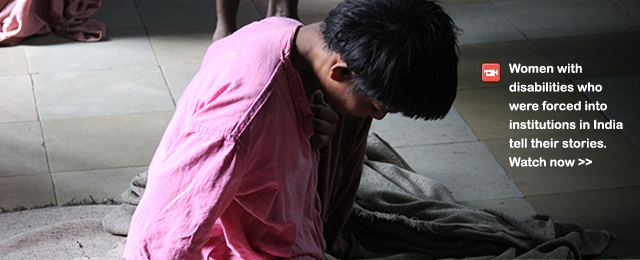| |||||
Interview: Locked Up in an Institution With No Way Out  Photo © 2013 Shantha Rau Barriga/Human Rights Watch In India, many women and girls with intellectual and psychosocial disabilities are locked up in institutions against their will. Some of the institutions for those women, who have disabilities ranging from Down's syndrome and cerebral palsy to schizophrenia and depression, are filthy and overcrowded. Residents lie on the floor practically on top of each other for lack of space. Opportunities to bathe are minimal, access to medical care is limited, and forced treatment – including electroshock therapy – is often the norm. Verbal or physical abuse by staff members is common. It’s not a pretty picture, but this is the reality for those living in institutions. Many don’t even know their diagnosis. Admitting female relatives to institutions is painfully easy, but it’s nearly impossible for these women to leave without their family’s permission. Human Rights Watch’s Kriti Sharma and other researcher visited 24 institutions across four Indian states – including government mental hospitals and government and private residential care facilities – for the new report, "Treated Worse than Animals." This is what they found.
| |||||
| |||||
| |||||
| |||||
| |||||
|
Home »
» World,Human Rights Watch,Interview: Locked Up With No Way Out









